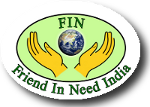- IF YOU WANT TO COLLABORATE ON ANY OF THESE PROJECTS GET IN TOUCH WITH US BY WRITING TO fintrust.india@gmail.com
FIN Rural Lab Projects
Improving WASH Infrastructure
A central mission of FIN is to promote the usage of dry flush toilets with urine diversion, commonly known as ecosan toilets (i.e. hygienic for the ecology and ultimately for humans) in coastal villages. Why? See this video to understand. While the construction of such eco-sanitary inventions is not new to Friend In Need (which has built over 300+ of these constructions), having it be accepted in coastal areas still remains a challenge. The ecosan toilets are not popular given the cultural norms which call for anal cleansing with water rather than wiping with toilet paper – as in South Asia, the Middle East, and much of Muslim Africa. Ecosan toilets also require more efforts for usage and maintenance. Therefore, FIN is working on design innovations and construction of high quality, climate resilient, toilet cum bathroom complexes to make the ecosan a popular
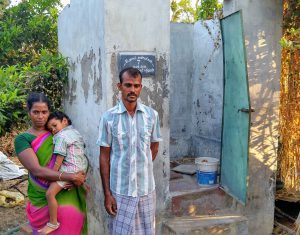
mainstream model.
There are also many toilets in Kameswaram village made by other NGOs and under other government programmes which have broken down. School and community toilets are not adequate. Handwashing facilities are not functional. There is thus, a dire need to repair existing toilets and handwashing facilities, build new ones and ensure efficient adoption of infrastructure through information, education, and communication (IEC) interventions.
- FIN partnerss with Powertec Engineering and Engineers without Borders on this project
The Green Academy Project
The objective of the project is to make students from the crèche to the university – the motors of a Clean and Green India/World and the future circular economy champions of India/World. Children and youth are the change-makers of the future and schools are mainly where their capabilities, visions and values are built. FIN believes that through teaching children in schools about our 4Rs, i.e. Reduce, Reuse, Recycle and Respect, we can 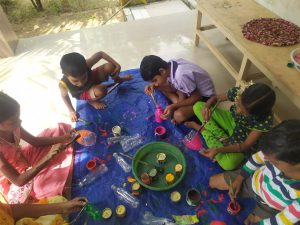 empower them to become environmental change agents in their community. We call this ‘WASHE approach’ i.e. in addition to water, sanitation and hygiene behaviour – we must motivate them to be ENGAGED for community harmony and hygiene.
empower them to become environmental change agents in their community. We call this ‘WASHE approach’ i.e. in addition to water, sanitation and hygiene behaviour – we must motivate them to be ENGAGED for community harmony and hygiene.
But for this, we need a new type of education. Behavioural change cannot be forced. Neither will it happen if teaching is imparted in a top-down boring advisory fashion. Thus, we need to embed environmental education into teaching by developing innovative, interesting classes. Key information must be given in ‘bite-sized’ pieces that trigger the creation of circular thinking. This must be followed by learning through doing.
For this purpose, FIN staff and interns are working on creating an educative program that takes environmental education into the classrooms in a fun, and yet, educative way. The content is being implemented in our events and school interventions whenever the pandemic rules permit, tested and improved upon.
Education for Empowerment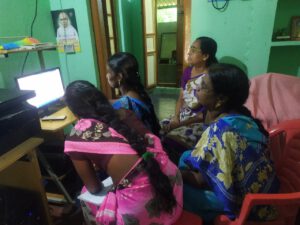
Through collaborative discourse four central needs have been identified.
- Spoken English Classes
- Cycling, scooter and moped driving classe for women
- Computer Typing
- Smart phone classes
Link with our mission for Clean India: Any student coming to any of the above courses has to ensure:
- Segregation of biodegradable from non-biodegradable waste;
- Clean and bring to FIN office non-biodegradable waste that cannot be sold to recycler – so that it does not go to landfill, dumpsite or openly burnt.
- Participate in at least two of our village cleaning events per year.
Demonstrating Possibilities for Sustainability
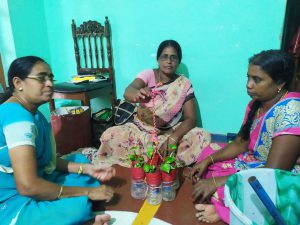 The output of the activities given below are shared via community actions, village level meetings and household level interactions.
The output of the activities given below are shared via community actions, village level meetings and household level interactions.
- Community Actions: Examples are – Cleaning of public spaces (beaches), Beautification of bus-stops and events to promote Gender Equality, Girls Development, Recognition of Rural Artisans, Recognition of Sanitation Workers, Social Harmony etc.
- Waste to value products: Examples are – mats from waste cloth obtained from tailors, bags from non-degradable packaging material, crafts from all forms of waste.
- Community Research: Examples are – discussion with households, rural workers and authority figures on water, sanitation and waste management.
- Ecological products – Production and Distribution: Examples are – organic vegetables and ecological toilet cleaners – small scale for demonstration.
FIN Centre of Circular Economy Projects
FIN Youth Training and Education
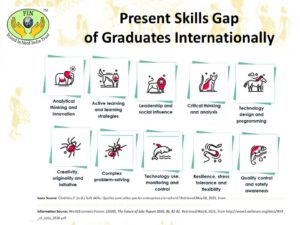
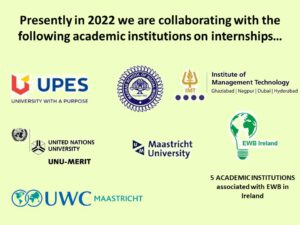
FIN International Webinars
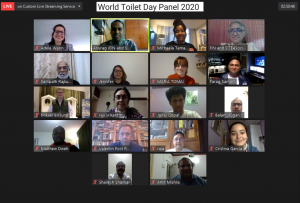 All of us draw inspiration from digital sources, print media, scientific articles and books – on what is happening in the world and our roles in this evolution. But, rarely do we get a chance to interact with those outside our social or professional network. To address this missed opportunity, FIN conducts “grass-roots webinars” on UN international days related to water and sanitation, environment and gender equality in the form of conversations between students, researchers and other community stakeholders of local and global innovation eco-systems. Students, citizens, corporate and NGO representatives, entrepreneurs, policy makers and other types of practitioners are invited to answer a set of designed questions to provide ‘live learning’ sessions. This also provides excellent opportunities for our interns to strengthen their organisation, communication and team work skills.
All of us draw inspiration from digital sources, print media, scientific articles and books – on what is happening in the world and our roles in this evolution. But, rarely do we get a chance to interact with those outside our social or professional network. To address this missed opportunity, FIN conducts “grass-roots webinars” on UN international days related to water and sanitation, environment and gender equality in the form of conversations between students, researchers and other community stakeholders of local and global innovation eco-systems. Students, citizens, corporate and NGO representatives, entrepreneurs, policy makers and other types of practitioners are invited to answer a set of designed questions to provide ‘live learning’ sessions. This also provides excellent opportunities for our interns to strengthen their organisation, communication and team work skills.
FIN Research for Knowledge Sharing
Our research interests are focused on technology, innovation and policy for water security, universal sanitation coverage and elimination of open defecation, community waste management systems, hygiene behaviour and community engagement for sustainability. Interns develop research capabilities by working under our direction on these projects. Our current research projects concern the following:
- A question-answer bank on sanitation
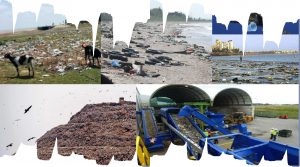
- Educational Content for Awareness Creation on Water – everything that citizens ought to know for sustainability behaviour
- A localised educational program to teach Spoken English in village.
- A program of digital empathy to enhance digital skills of the elderly and the low-income members with smartphone
- Policy briefs on water and sanitation for the scientific and policy maker community.
- Other educational program content/reports generation requirements of the FIN rural lab or the FIN CCE international webinars.
